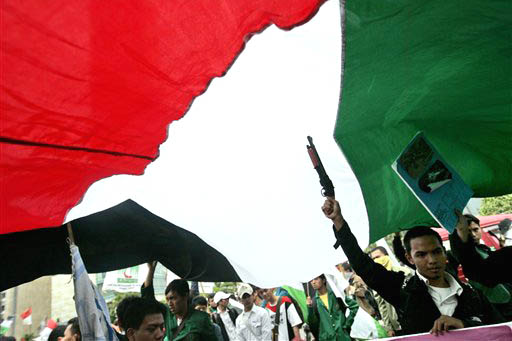Palestine is an important political issue in Malaysian and Indonesian domestic politics, and foreign policy.
First, in both countries large numbers of Muslims are genuinely faithful, and feel solidarity with other Muslims. This feeling is heightened by the increased prominence of Islam in Southeast Asian public life over the last two decades.
Palestinian politics have also Islamised, and Palestinian attacks are no longer explained as part of a national liberation struggle. This is the mood in which Southeast Asian Muslims hear about the issue in mosques and as media consumers, and donate money for relief efforts. They do this as concerned global-Muslim-citizens responding to what they view as a disaster experienced by people who are like them.
Second, in both Indonesia and Malaysia Islam is deployed strategically in domestic political competition, during and outside election campaigns. Palestine is used in both countries as a platform for competition between governments and Islamist parties and pressure groups. In Indonesia, Islamist groups demanded that the government send troops to Gaza. This statement appears ineffectual, but is calculated to achieve much: both pressuring the government to be seen to act Islamically, and polarising the community, repelling those who do not agree, but drawing closer those who might.
Third, partly in response to such pressures, governments have self-consciously Islamised their politics before domestic and international audiences. This is why Malaysia demanded – through the Organisation of the Islamic Conference (OIC) – an emergency United Nations General Assembly on Palestine, and unspecified sanctions against Israel.
This call was also ineffectual, but helped the government to be seen to act. It also assists Southeast Asian Muslim countries in pursuing greater economic cooperation, especially trade, between OIC member nations, partly by positioning themselves as global leaders in ‘moderate’ Islam and Islamic finance. This, incidentally, is also why they do not speak of Rohingya refugees from Burma in terms of global Muslim solidarity.
There is wide public support for the Palestinians in Southeast Asian Muslim countries. There is a Southeast Asian politics of Palestine because political actors there are as expert as any others in strategic messages, spin, and manipulating wedge issues.

